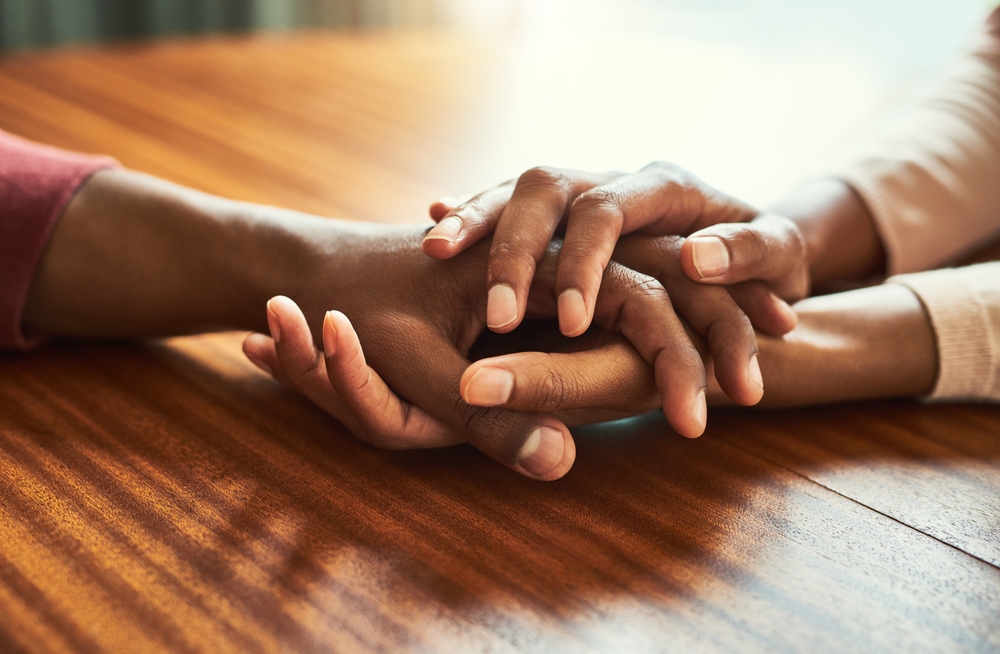Grief is a deeply human experience, a raw and transformative response to loss, yet it often lurks in the shadows of societal stigma and misunderstanding. This misjudgment can leave many feeling isolated in their mourning, amplifying their emotional pain. To truly support those who are grieving, we must break down these barriers and foster a compassionate environment where every individual’s journey through loss is met with empathy and understanding.
With Aug. 30 being National Grief Awareness Day, let’s examine how to help demystify grief and, more importantly, how to support those dealing with loss, regardless of who or what the person lost.
The stigma surrounding grief
Grief is often misunderstood and undervalued in contemporary society. Some common misconceptions include:
- “You should move on by now.”: Grief does not adhere to a set timeline. People are often pressured to “get over” their loss quickly, which can invalidate their emotions and delay healing.
- “Grieving is a sign of weakness.”: This belief stems from societal norms that equate emotional expression with weakness. In reality, grieving is a strength and a necessary part of healing.
- “You should be grieving in a certain way.”: There is no single correct way to grieve. Each person’s experience is unique, and expectations about how grief should look can cause further distress.
The importance of destigmatizing grief
- Encouraging open dialogue: Destigmatizing grief starts with encouraging open conversations about loss and mourning. When people feel they can talk about their grief without fear of judgment, they are more likely to seek support and find comfort.
- Validating diverse experiences: Recognizing that grief manifests in various ways helps validate individual experiences. Some people may grieve quietly, while others might express their emotions more openly. Both responses are valid and deserve understanding.
- Supporting mental health: Grief can significantly impact mental health. Reducing the stigma associated with seeking help can encourage individuals to access counseling or therapy, which can be essential for processing their emotions and finding coping strategies.
- Fostering compassion: Acknowledging that everyone will face loss at some point fosters a culture of empathy and support. By understanding that grief is a shared human experience, we can build more compassionate communities.
Steps toward destigmatizing grief
- Educate yourself and others: Learning about grief and its many forms can help dispel myths and foster empathy. Share this knowledge with others to build a more informed and supportive environment.
- Promote open conversations: Create spaces where people feel safe to discuss their grief. This can be in the form of support groups, community events or simply encouraging friends and family to share their experiences.
- Be mindful of language: The language we use can either support or stigmatize grief. Avoid dismissive or minimizing comments and instead offer compassionate and validating responses.
- Encourage professional support: Normalize seeking help from mental health professionals when dealing with grief. Therapy and counseling can provide valuable tools for navigating the grieving process.
- Support grieving individuals: Show up for people who are grieving by offering a listening ear, practical help or simply your presence. Small acts of kindness can make a significant difference.
Moving forward
Destigmatizing grief is not just about changing societal attitudes but also about fostering a more compassionate and supportive world. By understanding and embracing the complexity of grief, we can create an environment where individuals feel safe to mourn and heal. In doing so, we acknowledge the depth of human emotion and the essential role that grief plays in our lives. By breaking the silence and embracing grief as a natural and important part of the human experience, we build a more empathetic and resilient society.
This story was prompted and edited by Andrea Plaid and created by AI.
















